*This page will be updated frequently as new panelists confirm, so please check-in to see who we have lined up!*
Shelley Charles, MandawKwe
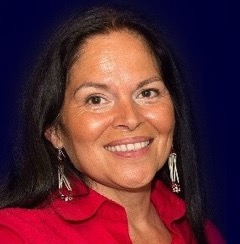 Shelley Charles is a member of the Chippewa’s of Georgina Island First Nation. She has worked extensively in First Nation communities across Canada and the US. She works with youth, teachers and aboriginal artists with a commitment to preserving cultural knowledge and language. Shelley is the Elder Advisor on Aboriginal Relations at Humber College. Her passion is to provide Aboriginal students with the support and guidance through their educational journey in a post-secondary environment. She has her Master’s Degree in Indigenous Philosophy.
Shelley Charles is a member of the Chippewa’s of Georgina Island First Nation. She has worked extensively in First Nation communities across Canada and the US. She works with youth, teachers and aboriginal artists with a commitment to preserving cultural knowledge and language. Shelley is the Elder Advisor on Aboriginal Relations at Humber College. Her passion is to provide Aboriginal students with the support and guidance through their educational journey in a post-secondary environment. She has her Master’s Degree in Indigenous Philosophy.
“According to the teachings of the Midewewin faith keepers, the language of the Ojibway Anishinabe people is written on the land. All of the plants and the waters have names that reflect our human relationship to creation. Before every ceremony or gathering we send out our songs that carry our prayers of thanksgiving for our first mother, the Earth”.
Vanessa Gray
Vanessa Gray is a 23 year old Anishinaabe kwe from the Aamjiwnaang First Nation, located in Canada’s Chemical Valley. Vanessa, a former youth Green Teens community organizer, has worked with community members to bring awareness to the health issues due to the toxic surroundings. She is an organizer with ASAP, Aamjiwnaang and Sarnia Against Pipelines and continues to raise awareness about environmental racism.
John Dirkx
The Transformative Dimensions of Social Justice Work:
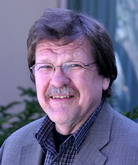 At the heart of transformative social change and transformative justice rests a deep and abiding commitment to being in relation and acting with others equally committed to a vision of society free of traditional systems of oppression. Our being together, however, can quickly become swamped in the drama that inevitably ensues when we come together to do this work. In our zeal to rid our social contexts of external forces of oppression, we often lose sight of our own inner demons. In this presentation, I will focus on the transformative learning that such work requires. As we focus our energies and lives on the work “out there”, we must also recognize and learn from the inner demons that this work can evoke. Discerning what is “out there” and “in here” represents an important focus of transformative learning in social justice work.
At the heart of transformative social change and transformative justice rests a deep and abiding commitment to being in relation and acting with others equally committed to a vision of society free of traditional systems of oppression. Our being together, however, can quickly become swamped in the drama that inevitably ensues when we come together to do this work. In our zeal to rid our social contexts of external forces of oppression, we often lose sight of our own inner demons. In this presentation, I will focus on the transformative learning that such work requires. As we focus our energies and lives on the work “out there”, we must also recognize and learn from the inner demons that this work can evoke. Discerning what is “out there” and “in here” represents an important focus of transformative learning in social justice work.
Sarah Scanlon
Sarah Scanlon is a queer feminist organizer based in Guelph, who has spent over a decade involved in gender based violence struggles within Ontario. Sarah’s involvement in the VAW (Violence Against Women) movement led her to working with the Children’s Aid Society as a Child Internet Exploitation Project Coordinator, as the Co-Coordinator for the I Know Someone Campaign, as the Community Mobilization Project Manager, and for OPIRG Guelph as the Coordinator of Organizational and Policy Development. Sarah deepened her analysis around alternative models to community healing and harm accountability in her role as the Public Education and Outreach Coordinator for the Sexual Assault Center of London. Her passion for working with boys and men, and the role they play in ending gender based violence, was fostered through her work as a group facilitator for Changing Ways Men’s Group and Youth Perpetrator Project. Sarah currently manages, and will be speaking about, the Gender Bullying Project focused on engaging boys with issues of masculinity and sexual violence through trans-formative justice and bystander intervention models.
Dean Barnes
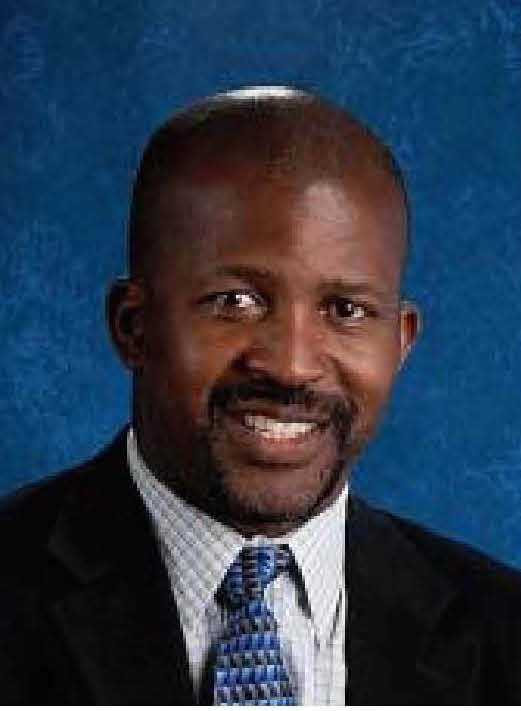 Dean Barnes is the Principal of T.A. Blakelock High School in Oakville Ontario. Dean has been a school admininstrator for 14 years and is a PhD graduate of the Ontario Institute of Studies in Education at the University of Toronto. His thesis was entitled: “Restorative Peacemaking Circles and other Conflict Management Efforts in Three Ontario High Schools” explored implementation approaches of pro-active and post-incident restorative circles. Dean’s leadership focuses on promoting high student achievement through healthy school-wide and classroom initiatives, such as increased physical activity and wellness, mindfulness, co-curricular activities, restorative practices, school-community partnerships, and relationship building interventions. He will speak about the impact of restorative justice circles in the classroom and the positive impact they have on the wellness of students.
Dean Barnes is the Principal of T.A. Blakelock High School in Oakville Ontario. Dean has been a school admininstrator for 14 years and is a PhD graduate of the Ontario Institute of Studies in Education at the University of Toronto. His thesis was entitled: “Restorative Peacemaking Circles and other Conflict Management Efforts in Three Ontario High Schools” explored implementation approaches of pro-active and post-incident restorative circles. Dean’s leadership focuses on promoting high student achievement through healthy school-wide and classroom initiatives, such as increased physical activity and wellness, mindfulness, co-curricular activities, restorative practices, school-community partnerships, and relationship building interventions. He will speak about the impact of restorative justice circles in the classroom and the positive impact they have on the wellness of students.
Atiya Jaffar
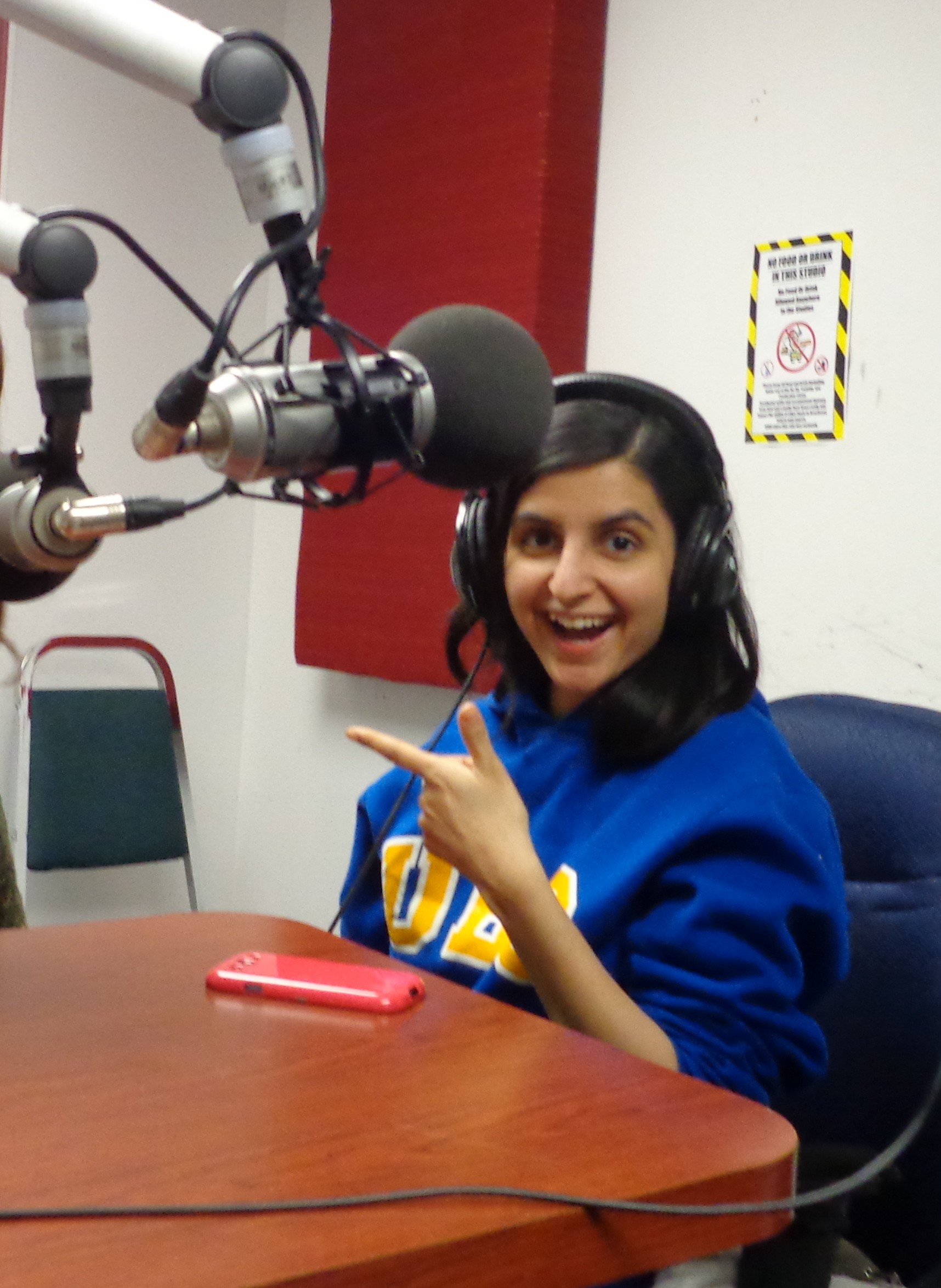 Atiya Jaffar is a first generation immigrant from Pakistan who was driven to climate justice work after first hand experience seeing climate change impacts in the Global South. She is a digital organizer for 350.org and has been responsible for developing the digital strategy for 350’s operations in Canada. She was part of the team that organized the historic March for Jobs, Justice and the Climate this July. Atiya’s also a recent graduate from the University of Guelph where she completed a thesis that focused on the relationship between the Indigenous sovereignty and environmental movements. While at Guelph, she had the opportunity to work on the fossil fuel divestment campaign on campus. This December, Atiya will be raising a voice in support of climate justice as part of the Canadian Youth Delegation at the international climate negotiations in Paris.
Atiya Jaffar is a first generation immigrant from Pakistan who was driven to climate justice work after first hand experience seeing climate change impacts in the Global South. She is a digital organizer for 350.org and has been responsible for developing the digital strategy for 350’s operations in Canada. She was part of the team that organized the historic March for Jobs, Justice and the Climate this July. Atiya’s also a recent graduate from the University of Guelph where she completed a thesis that focused on the relationship between the Indigenous sovereignty and environmental movements. While at Guelph, she had the opportunity to work on the fossil fuel divestment campaign on campus. This December, Atiya will be raising a voice in support of climate justice as part of the Canadian Youth Delegation at the international climate negotiations in Paris.
Maria Shallard
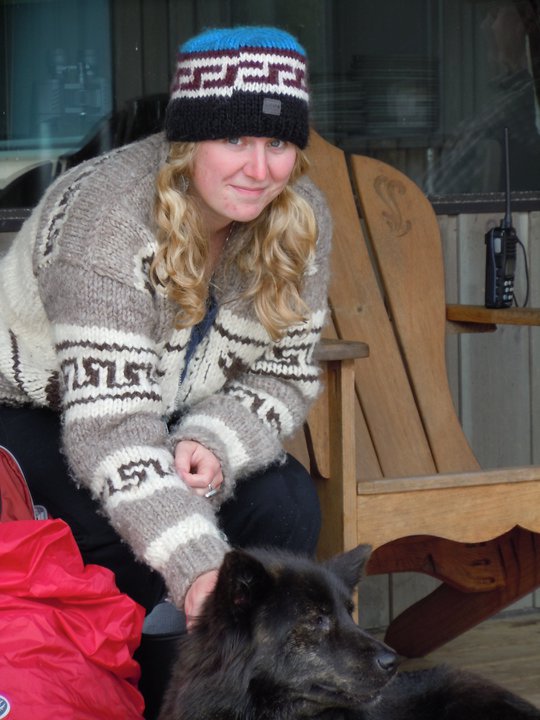 Maria Shallard is Penelakut First Nation and European ancestry and grew up on Lil’wat territory in Pemberton, British Columbia. Currently, she is the Coordinator, Aboriginal Programs, Office of Intercultural Affairs in the Student Life Department at the University of Guelph and resides on the traditional land of the Attawanderon people. Maria holds an undergraduate degree from the University of Victoria with a double major in Environmental Studies and Canadian history with a minor in Indigenous Studies. Recently, she has finished a Master’s degree in Geography from the University of Guelph where she completed a thesis that focused on ocean governance, human well-being and Indigenous sovereignty. In past experience she has worked in First Nations communities with youth driven by a passion to provide opportunities to navigate between divergent worldviews through experiential and out of class room opportunities. While at Guelph she sits on a Truth and Reconciliation Committee and supports Indigenous advocacy and awareness through various community events. Her main focus is to ensure that there are a range of programs offered for Aboriginal students to learn, grow and experience on their academic journey. Maria believes in “nuts’a’maat shqwaluwun” (working together as one) (with one heart/mind).
Maria Shallard is Penelakut First Nation and European ancestry and grew up on Lil’wat territory in Pemberton, British Columbia. Currently, she is the Coordinator, Aboriginal Programs, Office of Intercultural Affairs in the Student Life Department at the University of Guelph and resides on the traditional land of the Attawanderon people. Maria holds an undergraduate degree from the University of Victoria with a double major in Environmental Studies and Canadian history with a minor in Indigenous Studies. Recently, she has finished a Master’s degree in Geography from the University of Guelph where she completed a thesis that focused on ocean governance, human well-being and Indigenous sovereignty. In past experience she has worked in First Nations communities with youth driven by a passion to provide opportunities to navigate between divergent worldviews through experiential and out of class room opportunities. While at Guelph she sits on a Truth and Reconciliation Committee and supports Indigenous advocacy and awareness through various community events. Her main focus is to ensure that there are a range of programs offered for Aboriginal students to learn, grow and experience on their academic journey. Maria believes in “nuts’a’maat shqwaluwun” (working together as one) (with one heart/mind).
Yusra Khogali Ali
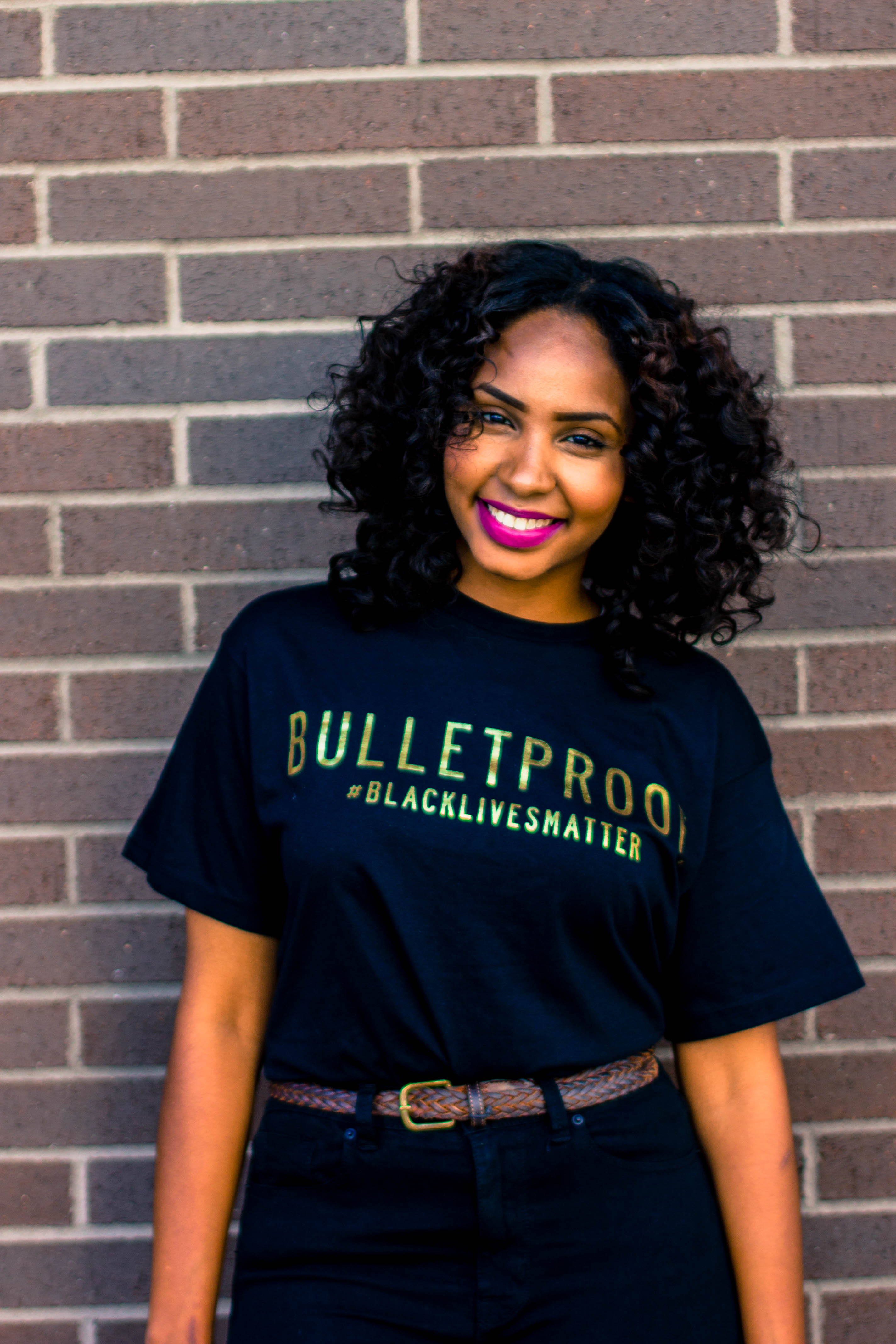 Yusra is a Toronto based community organizer and activist, currently one of the co-founders of the Black Lives Matter Toronto chapter movement. She is a daughter of the sudanese diaspora by ancestry, born in nairobi, but a toronto bred and based black feminist spoken word poet who uses her art as a form of resistance to challenge various forms of Canadian state-sanctioned anti-blackness. She is also working on completing her masters of arts degree as a student in Social Justice Education at the University of Toronto Ontario Institute for Studies in Education. Yusra believes in the self determination of black peoples lives globally and all her artistic resistance and activism, education and community organizing is dedicated to die fighting for this.
Yusra is a Toronto based community organizer and activist, currently one of the co-founders of the Black Lives Matter Toronto chapter movement. She is a daughter of the sudanese diaspora by ancestry, born in nairobi, but a toronto bred and based black feminist spoken word poet who uses her art as a form of resistance to challenge various forms of Canadian state-sanctioned anti-blackness. She is also working on completing her masters of arts degree as a student in Social Justice Education at the University of Toronto Ontario Institute for Studies in Education. Yusra believes in the self determination of black peoples lives globally and all her artistic resistance and activism, education and community organizing is dedicated to die fighting for this.Emily Duron
 Emily Duron, BA, BEd is the Director/Founder of The ACE Approach (Awareness and Consciousness Education). After teaching in Toronto private schools for many years, she realized the importance of developing the Social and Emotional skills of students. Through transformative and reflective practices, The ACE Approach nurtures self-awareness, self-responsibility and peaceful problem solving by teaching students meditation, breathing techniques and emotional literacy. The ACE Approach offers a potent combination of three key educational methods that current research has proven are most supportive of student growth: Social and Emotional Learning, Mindfulness/Awareness and Inquiry-Based Experiential Education. The ACE Approach Classroom and Professional Development programs provide a full spectrum of practical tools to enable students and teachers to connect in healthy, communicative and peaceful ways. The inspiration of The ACE Approach has its roots in the teachings of Yogini Mangala Anshumati, creator of Hridaya Yoga – Yoga of the Heart and AHIMSA -Artistic Harmlessness in Mind Speech and Action. These two organizations are committed to teaching non-violence to people of all ages. Emily has been a student of Hridaya Yoga for 5 years and is devoted to a life of learning and self-discovery.
Emily Duron, BA, BEd is the Director/Founder of The ACE Approach (Awareness and Consciousness Education). After teaching in Toronto private schools for many years, she realized the importance of developing the Social and Emotional skills of students. Through transformative and reflective practices, The ACE Approach nurtures self-awareness, self-responsibility and peaceful problem solving by teaching students meditation, breathing techniques and emotional literacy. The ACE Approach offers a potent combination of three key educational methods that current research has proven are most supportive of student growth: Social and Emotional Learning, Mindfulness/Awareness and Inquiry-Based Experiential Education. The ACE Approach Classroom and Professional Development programs provide a full spectrum of practical tools to enable students and teachers to connect in healthy, communicative and peaceful ways. The inspiration of The ACE Approach has its roots in the teachings of Yogini Mangala Anshumati, creator of Hridaya Yoga – Yoga of the Heart and AHIMSA -Artistic Harmlessness in Mind Speech and Action. These two organizations are committed to teaching non-violence to people of all ages. Emily has been a student of Hridaya Yoga for 5 years and is devoted to a life of learning and self-discovery.
Alok Mukherjee
![2015 updated Chair s picture_DSC_9778 [150627]](https://cctsc.ca/wp-content/uploads/2015/09/2015-updated-chair-s-picture_dsc_9778-150627.jpeg?w=300) Alok Mukherjee is a Distinguished Visiting Professor at Ryerson University, Toronto. He served as Chair of the Toronto Police Services Board from 2005 to 2015. Police Boards, having served as its President. With his focus on promoting effective and affordable community-based policing under civilian oversight provincially and nationally, Dr. Mukherjee was actively involved in Ontario government’s Future of Policing Advisory Committee as well as in other police governance forums across Canada.
Alok Mukherjee is a Distinguished Visiting Professor at Ryerson University, Toronto. He served as Chair of the Toronto Police Services Board from 2005 to 2015. Police Boards, having served as its President. With his focus on promoting effective and affordable community-based policing under civilian oversight provincially and nationally, Dr. Mukherjee was actively involved in Ontario government’s Future of Policing Advisory Committee as well as in other police governance forums across Canada.
He is frequently called upon to speak and write on policing issues for a variety of audiences. He brings a unique perspective to law enforcement issues from his experiences in a highly multicultural and multiracial environment.
Dr. Mukherjee has worked as an educator and a consultant. He has written extensively in a variety of areas including diversity and inclusivity, employment equity for racially visible and aboriginal people, and anti-racist education.
Dr. Mukherjee has held several public appointments, including membership on the Toronto District School Board Safe and Compassionate School Taskforce and the Ontario Civilian Commission on Police Services, and has served as Vice Chair and Acting Chief Commissioner of the Ontario Human Rights Commission.
Dr. Mukherjee has received several awards for his volunteer activities and for his outstanding work at a professional and social level. He is a recipient of the Queen’s Diamond Jubilee Medal from the Government of Ontario.
Margot Van Sluytman
Margot Van Sluytman is an award-winning expressive writing teacher, mentor, restorative justice advocate, and public speaker. She is invited to teach and give talks and workshops about how expressive writing is a rich process of healing and transformation, by reclaiming, respecting, and living our precious voice. Her books include: Sawbonna: I See You, A Real Life Restorative Justice Story; The Other Inmate: Mediating Justice-Mediating Hope, Poetry and Writing Workbook for Restorative Practices (English and French); Layers of Possibility: Healing Poetry from The Members of The National Association for Poetry Therapy, Foreword by Dr. Robert Carroll, NAPT; Dance With Your Healing: Tears Let Me Begin to Speak With My Pen; and, Wild Self Real Self: Write Your Voice of Healing and Strength. She has been interviewed by media around the world. Margot is the Founder of The Sawbonna Project for Living Justice and a Member of The National Association for Poetry Therapy.
Sunny Dhillon
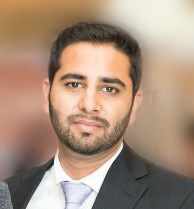 Sunny Dhillon is a Researcher and Program Evaluator with the Centre of Research, Policy & Program Development. He joined the Centre in 2014. He is involved in the evaluation of a variety of local office programs, and provides support to current research projects. He has completed an MSc with Distinction in Criminology and Criminal Justice Research Methods at the University of Oxford, as well as an MA in Criminology and Sociolegal Studies at the University of Toronto. He has also worked as a Senior Statistics Officer for the Ministry of Community Safety and Correctional Services. During his graduate studies he focused on the operation of the criminal justice system, access to justice, and emerging methodologies in criminological research.
Sunny Dhillon is a Researcher and Program Evaluator with the Centre of Research, Policy & Program Development. He joined the Centre in 2014. He is involved in the evaluation of a variety of local office programs, and provides support to current research projects. He has completed an MSc with Distinction in Criminology and Criminal Justice Research Methods at the University of Oxford, as well as an MA in Criminology and Sociolegal Studies at the University of Toronto. He has also worked as a Senior Statistics Officer for the Ministry of Community Safety and Correctional Services. During his graduate studies he focused on the operation of the criminal justice system, access to justice, and emerging methodologies in criminological research.
Sunny’s talk will be based on the recent report by the Centre titled: Unlocking Change: Decriminalizing Mental Health Issues in Ontario. This report chronicles how the criminal justice system has become a catchall for people whose mental health issues have gone untreated or undetected in the community. The Report calls on the province to stop relying on the justice system as a key responder to individuals who have mental health issues, and provides recommendations aimed at shifting Ontario toward prevention. Unlocking Change articulates a pressing need for a paradigm shift in Ontario toward – and investment in – proactive, preventative and inclusive approaches to mental health. A prevention-based approach would aim to help Ontarians with mental health issues beforethey become at risk – of homelessness, crisis, unemployment or conflict with the law. The talk will emphasize possible policy solutions as well as open a discussion among the panelists and attendees on promising solutions for the future.
Steve Wineman
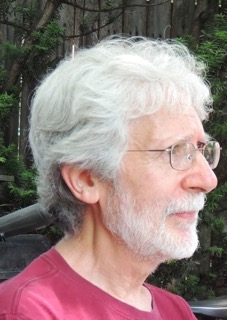 Steve Wineman’s social change activism dates back to the 1960s. He has participated in efforts to achieve peace and disarmament, racial and gender equality, workplace democracy, and ecological sustainability. He retired at the end of 2013 after more than 30 years working in community mental health. Steve is the author of The Politics of Human Services and Power-Under: Trauma and Nonviolent Social Change.
Steve Wineman’s social change activism dates back to the 1960s. He has participated in efforts to achieve peace and disarmament, racial and gender equality, workplace democracy, and ecological sustainability. He retired at the end of 2013 after more than 30 years working in community mental health. Steve is the author of The Politics of Human Services and Power-Under: Trauma and Nonviolent Social Change.
Steve Wineman’s talk will focus on the complex, interacting dynamics of power and trauma. He will describe the continuum of objective power relations, ranging from dominance to shared power to subordination, as well as the continuum of subjective power experience ranging from full empowerment to the internalization of powerlessness that often accompanies trauma. To understand the full complexity of power, we need to recognize how the same person can be dominant on one dimension (such as class) and subordinate on another (such as gender). We also need to recognize that subjective power (or lack of power) often does not match people’s objective power positions, and that internalized powerlessness can lethally combine with objective dominance. Understanding the complexity of power dynamics, including the role of trauma, is critical to the development of effective strategies for transformative social change.
Cameron Reid
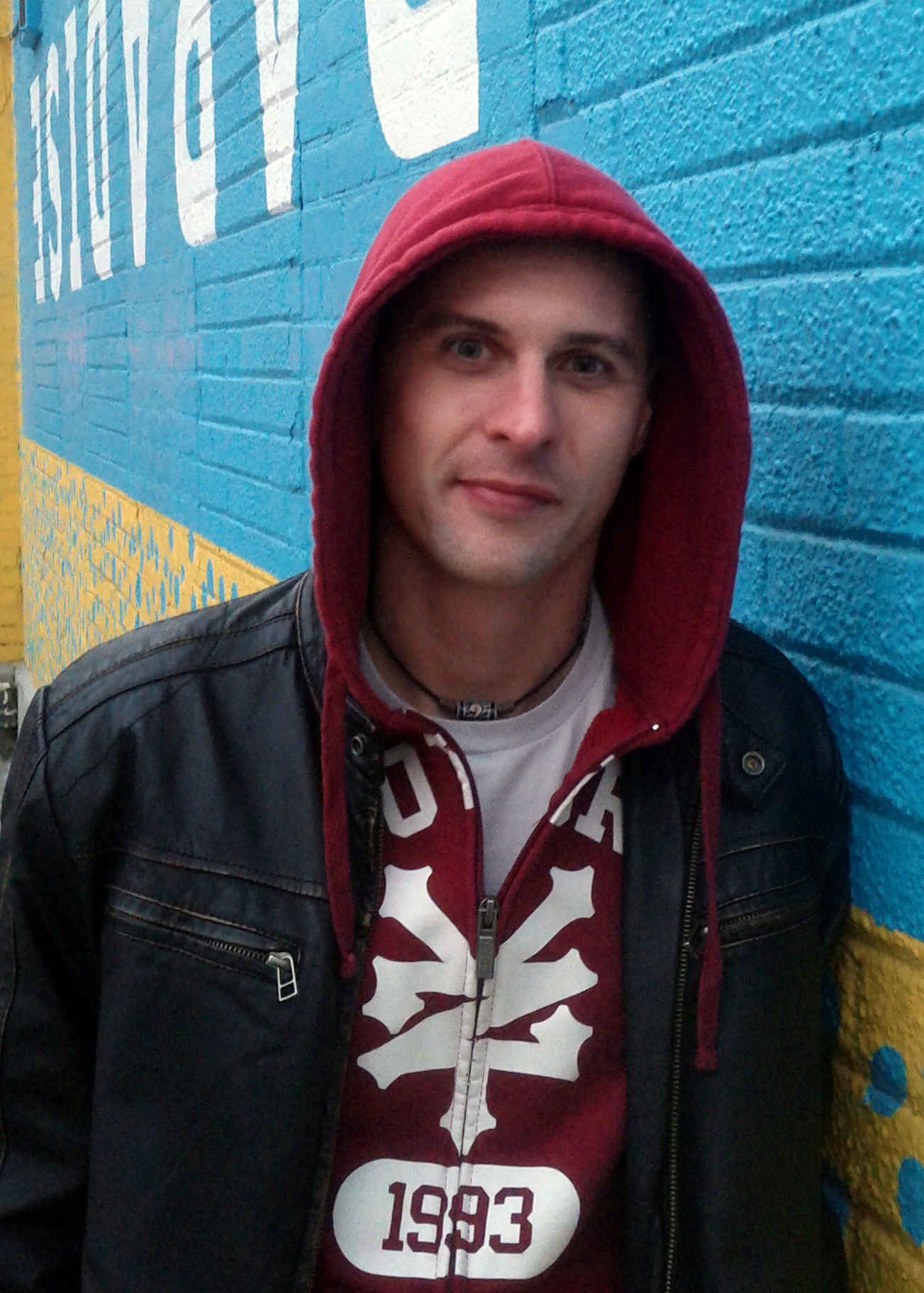 Cameron Reid is a community activist and recent graduate of Humber’s SSW program. He has served as the co-chair of the Toronto Harm Reduction Worker’s Union Organizing Committee (IWW 610), and is a member of the Toronto Harm Reduction Alliance, a local advocacy and activist organization.
Cameron Reid is a community activist and recent graduate of Humber’s SSW program. He has served as the co-chair of the Toronto Harm Reduction Worker’s Union Organizing Committee (IWW 610), and is a member of the Toronto Harm Reduction Alliance, a local advocacy and activist organization.
His experiences living with clinical depression since his early teens and his later journey through self medication with drug use form the basis for his commitment to advocating for peer-driven solutions, community empowerment, and reformation of drug policy.
Leah Henderson
Leah is a queer-crip-femme-witch who spends a lot of time working, writing and thinking about community accountability and transformative justice. She supports and develops community accountability processes in her communities. She is a white, settler, who is a community organizer based on the stolen and colonized land of toronto, ontario, that has spent over a decade involved in struggles for justice within apartheid canada. Leah’s involvement in the environmental movement lead her to supporting Indigenous communities in the struggle for Sovereignty and Self-Determination. Leah has also been part of building communities that fight for justice for queer and trans people, women, low- income, disabled and racialized people. She has worked with groups across Turtle Island on fighting sexism, homophobia and transphobia and in solidarity with the movement for migrant justice.
Special Performance:
Raging Asian Women
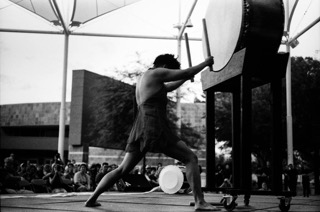 Raging Asian Women Taiko Drummers (RAW) is a community arts collective of East and Southeast Asian Women in Toronto. We are a Taiko drumming group that exists as a critical response and challenge to both systemic and internalized oppressions. Through performance, education, and community outreach, we seek to challenge, redefine and represent ourselves, and to inspire ourselves and others. Through collective membership, artistic creation, and active development, we carve space for self-expression, authentic engagement, community, and healing.
Raging Asian Women Taiko Drummers (RAW) is a community arts collective of East and Southeast Asian Women in Toronto. We are a Taiko drumming group that exists as a critical response and challenge to both systemic and internalized oppressions. Through performance, education, and community outreach, we seek to challenge, redefine and represent ourselves, and to inspire ourselves and others. Through collective membership, artistic creation, and active development, we carve space for self-expression, authentic engagement, community, and healing.
RAW was formed in 1998 as one of the only all-women taiko groups in North America, by three former members of Wasabi Daiko. RAW traces its lineage through the North American taiko movement’s unique history, one that is integrally linked to the Asian American Movement of the 1960s and 1970s when Asian Americans and Canadians mobilized en masse around issues of racial equality, social justice, and political empowerment.
RAW has performed at a wide variety of events including Pride celebrations in Toronto and Buffalo NY, Dim Sum Chinese Festival as part of Harbourfront Centre’s World Routes Summer Festivals, Muhtadi International Drumming Festival in Toronto and Tobago, Mayworks Festival of Working People and the Arts, Toronto’s WinterCity Festival, Labour union conventions, International Women’s Day events, art festivals, social justice events… and more!
Over the last few years, RAW has expanded its community and educational outreach, doing residencies at various TDSB schools, workshops series with the Queer Asian Youth, as well as offering introductory taiko workshop to the public. RAW is unique in the taiko community in that the group is a strong advocate for the queer community and providing women-safe environment at our performances and workshops.
